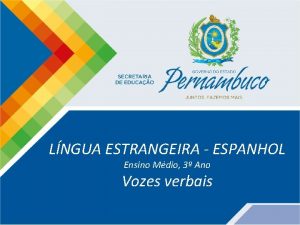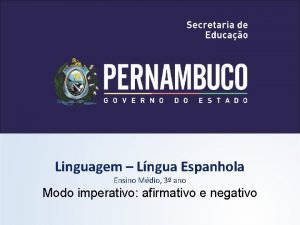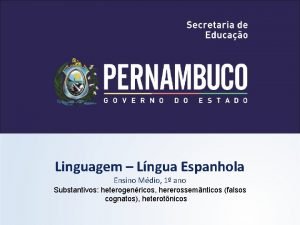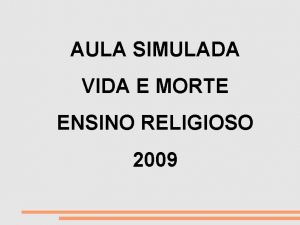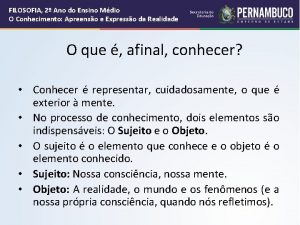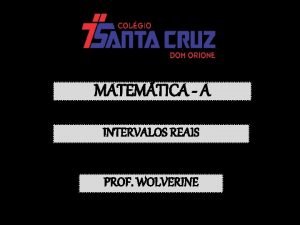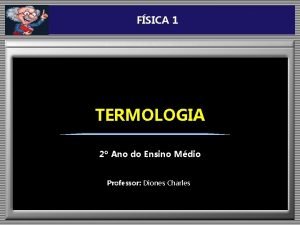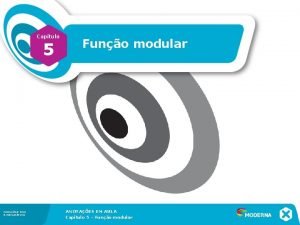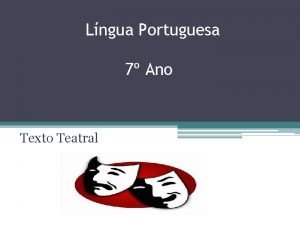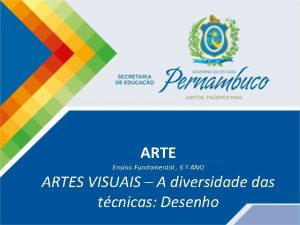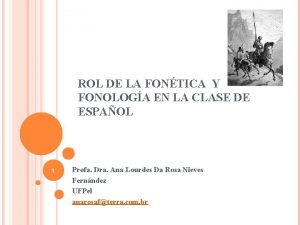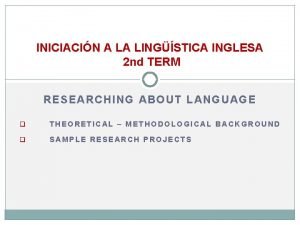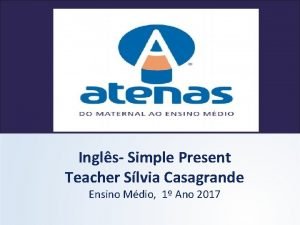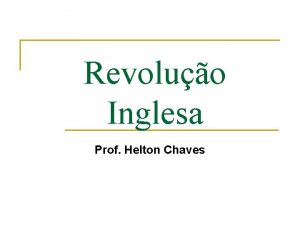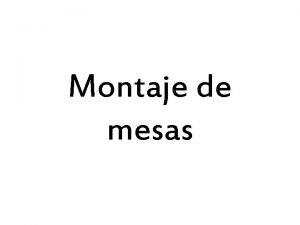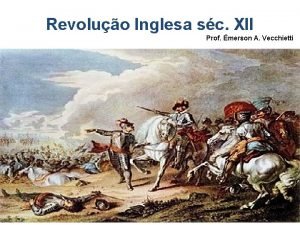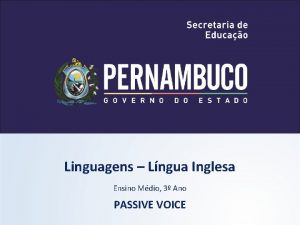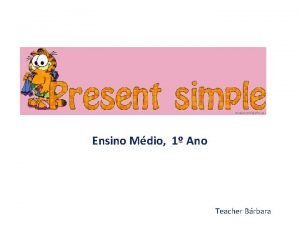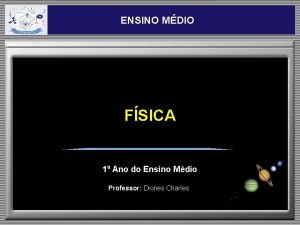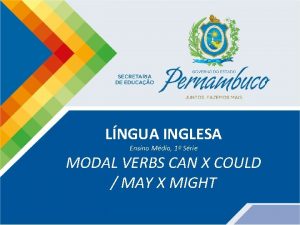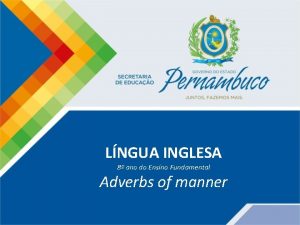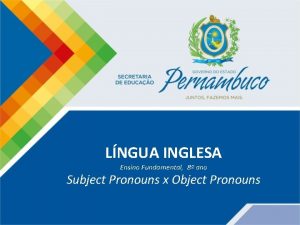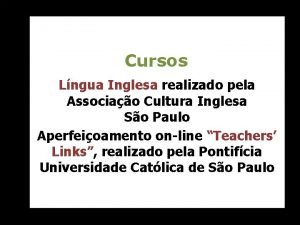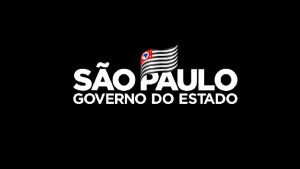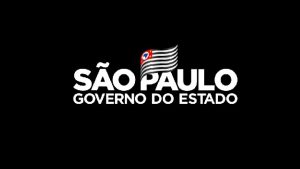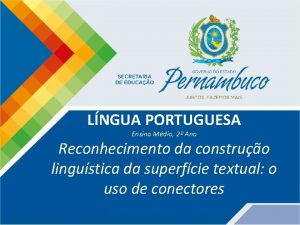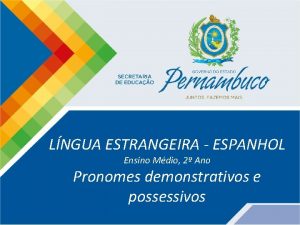Letras Lngua Inglesa Ensino Mdio 1 Ano THERE


























- Slides: 26

Letras – Língua Inglesa Ensino Médio, 1º Ano. THERE TO BE SIMPLE PRESENT X SIMPLE PAST

THERE TO BE / TO BE THERE (Haver) Em português, dizemos: HÁ UM. . . e, de igual forma, HÁ DOIS. . . Observe que na língua portuguesa o verbo haver não sofreu alteração no sentido em que foi empregado; ao passo que, em inglês, temos: “THERE IS” para o singular, e “THERE ARE” para o plural. • Exemplos: “There is one store here”; (Há uma loja aqui). “There are two stores here”; (Há duas lojas aqui).

Observação: É IMPORTANTE LEMBRAR QUE ESSE VERBO SUBSTITUI O VERBO TER EM FRASES COMO: Tem alguém aí? • (IS THERE anyone there? ) • Ou seja, o verbo ter no sentido de existir, e não no sentido de possuir.

FORMA INTERROGATIVA: FAZENDO-SE AS PERGUNTAS: “IS THERE. . . ? ”, “ ARE THERE. . . ? ”; observe que as formas “IS” e “ ARE”, na forma interrogativa, ficam antes do advérbio “THERE”. Exemplo: “Is there a drugstore here? ”. ( Há uma drogaria aqui? ).

WH- WORD: Com palavra interrogativa na pergunta, ela ficará antes das formas Is e/ou are: Exemplo: What is there in your city? (O que há na sua cidade? );

MAIN WH-WORDS: How / Como Where / Aonde; Onde What / O que Who/ Quem When/ Quando Why/Por que

Com base no que você já viu até agora, • como você falaria e / ou escreveria estas frases em Inglês: • Há um jogo hoje. . . • THERE IS one game today. • Há dois jogos hoje? • ARE THERE two games today? Good!

FORMA NEGATIVA: Negando: “THERE IS NOT. . . ”; “THERE ARE NOT …” Observe que, para negar com esse verbo, é suficiente adicionar o advérbio NOT após as formas “THERE IS” e/ou “THERE ARE”. Exemplo: “There is NOT a boy here. ” (Não há um menino aqui).

FORMAS ABREVIADAS: THERE’S NOT. . . ; (Não há. . . ); THERE ISN’T. . . ; (Não há. . . ); THERE AREN’T. . . ; (Não há. . . )

SHORT ANSWERS: RESPOSTAS CURTAS AFIRMATIVAS NEGATIVAS Is there a swimmingpool in your house? Yes, there is. Are there pets in your house? Yes, there are. Is there a swimmingpool in your house? No, there isn’t. Are there pets in your house? No, there aren’t. Obs. : Tais formas de resposta expressam pouco interesse pelo assunto.

QUESTION –TAG: São perguntas feitas nos finais das orações para confirmar o que foi dito antes: • OBSERVAÇÃO Se a oração inicial for afirmativa, a “Question-tag” será interrogativa-negativa. EXEMPLO: Há uma parada de ônibus próximo daqui, “ There is a bus stop near here”, Oração inicial afirmativa não há? isn’t there? Question-tag interrogativa negativa

QUESTION-TAG II Todavia, se a oração inicial for negativa, a “tag” será apenas interrogativa: EXEMPLO: Não há muitas pessoas nessa festa, há? “There are not many people at that party , are there? ” Oração negativa Question-tag interrogativa

QUESTIONS AND ANSWERS WITH THERE I/ARE: Observe o vídeo a seguir e aprenda mais sobre como perguntar e responder, utilizando THERE IS/ THERE ARE; Clique aqui. .

SIMPLE PAST TENSE WITH THERE IS/ARE: Troca-se: “IS” por “WAS”; “ARE” por “WERE”. Exemplo: “THERE WAS one square at the end of this street. ” (Havia uma praça no final desta rua); “THERE WERE two squares there”; (Havia duas praças lá).

FORMAS INTERROGATIVA E NEGATIVA: • As formas interrogativa e negativa do verbo haver, no Passado, passam pelos mesmos processos estruturais de suas formas estudadas no tempo Presente: “THERE WAS NOT. . . ” (Neg. / sing. ) “ THERE WERE NOT. . . ” (Neg. /plural) “WAS THERE. . . ? ” ( Int. sing. ) “WERE THERE? ” (Int. plural) ( Não havia/ existia) • O verbo haver está sendo estudado no sentido de existir.

ALGUNS ADVÉRBIOS DE TEMPO IMPORTANTES QUE DETERMINAM O PASSADO: YESTERDAY = ONTEM; LAST WEEK = SEMANA PASSADA; LAST YEAR = ANO PASSADO; LAST MONTH = MÊS PASSADO; THE DAY BEFORE YESTERDAY = ANTEONTEM; TWO DAYS AGO = HÁ DOIS DIAS ATRÁS Exemplo: Havia muitas pessoas aqui ontem “There were many people here yesterday”.

Quantifiers: São palavras que indicam a quantidade do que há em algum espaço físico e/ou psicológico: Exemplo: There are some people waiting for you. ( Há algumas pessoas esperando por você) Clique aqui para conhecer alguns dos mais comuns.

EXERCISES: Read answer: Would you like to have a long life on earth? John is sitting near by his friend Bob, who is completely envolved with drugs and all sorts of wrong acts in the society. The teacher of science has just finished her class on the importance of a healthy food to live longer. • “It’s not what goes in that makes you live longer”, says John. “So, does it mean I can keep drinking and eating whatever I want”, asks Bob, smiling. “Not exactly”, John answers. “The fact is that there is a much more important life and it is not polluted with such material things, you know, such as food, drinks and so on…” Says John. “So what can really pollute it? ” Bob replies. “Those words and act that proceed from man”, John answers.

KEEP READING: “However, the word of God also worries about what to eat in order to live longer”, John adds. During the break time, having the brunch John keeps talking to Bob about the Bible’s verses on food. “According to Deuteronomy (14: 3 -21) you should really chose what to eat to keep you physical body healthy for example, you may eat animal which has a split hoof divided in two and that chews the cud, such as: The ox, the sheep, the goat, the deer, the gazelle, the roe deer, the wild goat, the ibex. From those species you should except the camel, the rabbit and the coney. ” …Then, according to John’s view, God has a general care about his children. He takes care of his children in every little detail of their lives from clothes to food. However, you’ve got to do something: open your heart’s door and let him come in and all your problems will have a peaceful way to be solved.

Now you answer: 1 -What is the text talking mainly about? • • a) Health b) Sociology c) Politics d) Religion

Tick the correct alternative: 1 -How many animals are there which, according to the text, are not considered to be healthful to eat? a) 2 b) 9 c) 8 d) 3 e) 11

Complete with the corret fom of there to be verb: Was there • 1 -. . . a party at your home yesterday? There are • 2 -. . . some opportunities for you. There isn’t • 3 -. . . anyone out side. Are there • 4 -. . . nice beaches in Pernambuco?

Use the correct question-tag: aren’t there? 1 -There are many stores in this shopping, . . are there? 2 - There are not many pubs in the city center. . . . . isn’t there? 3 - there is a squere near here, . . are there? 4 -There are not many ways to get there , . .

Translate: • “The fact is that there is a much more important life and it is not polluted with such material things, you know, such as food, drugs and so on…” Says John. • “O fato é que existe uma vida muito mais importante e ela não é poluída com coisas materiais, você sabe, tais como: comida drogas etc. ” Diz John.

Turn into English: • 1 - Há um supermercado por aqui? a. Is there a supermarket around here. • 2 - Há outras maneiras de chegar lá? a. Are there other ways to get there? • 3 - Não há outro caminho, há? a. There isn’t another way, is there? 4 - O que há na sua cidade? a. What is there in your city?

THIS IS THE END OF OUR THERE TO BE SIMPLE PRESENT X SIMPLE PAST CLASS. I HOPE YOU HAVE ENJOYED IT. . . THANK YOU!
 Las voces del verbo
Las voces del verbo Lngua
Lngua Lingustica
Lingustica Lngua
Lngua Vestido mdio
Vestido mdio Heterogenerico
Heterogenerico Vestido mdio
Vestido mdio Artes visuais 8 ano
Artes visuais 8 ano Texto vida e morte ensino religioso
Texto vida e morte ensino religioso Geografia asia
Geografia asia Filosofia 2 ano ensino médio
Filosofia 2 ano ensino médio Contas de matematica 1 ano ensino medio
Contas de matematica 1 ano ensino medio Intervalo ilimitado
Intervalo ilimitado Equação linear
Equação linear álgebra 3 ano ensino fundamental
álgebra 3 ano ensino fundamental O que é temperatura
O que é temperatura Função modular exercícios 1 ano ensino médio
Função modular exercícios 1 ano ensino médio Atividade texto teatral 7 ano
Atividade texto teatral 7 ano Arte visual 6 ano
Arte visual 6 ano Contas do 3 ano do ensino medio
Contas do 3 ano do ensino medio Lingua inglesa
Lingua inglesa Linguovelares
Linguovelares Gramtica inglesa
Gramtica inglesa Simple present imagens
Simple present imagens Guerra das rosas
Guerra das rosas Mesa estilo ingles
Mesa estilo ingles Revolução inglesa
Revolução inglesa
